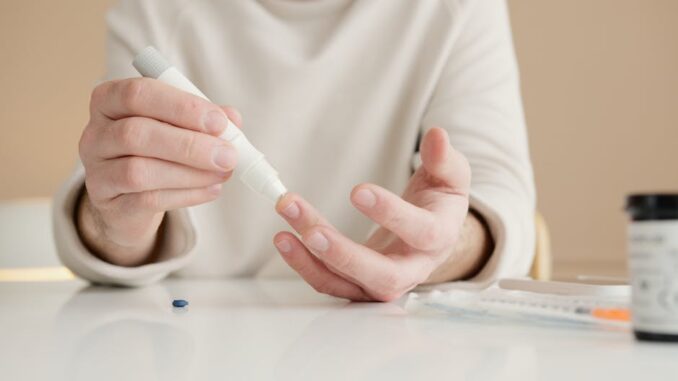
Summary
This article explores common medications known to elevate blood glucose levels, impacting diabetes management. We delve into the mechanisms behind these effects and discuss strategies for mitigating risks. Understanding these potential side effects empowers individuals to make informed decisions about their health.
Healthcare data growth can be overwhelming scale effortlessly with TrueNAS by Esdebe.
** Main Story**
Let’s talk diabetes management; it’s more than just diet and exercise. Medication plays a huge role, right? But here’s a thing, some common drugs can actually increase blood glucose levels, which throws a wrench in the works for people trying to manage their diabetes. So, we need to be aware of these sneaky culprits, understand why they have this effect, and, most importantly, figure out how to minimize the risks. After all, knowledge is power.
Corticosteroids: A Balancing Act
Corticosteroids, like prednisone, are powerful anti-inflammatories used for asthma, arthritis, autoimmune diseases, you name it. They’re essentially synthetic versions of hormones your adrenal glands produce. The downside? They can send your blood sugar soaring. How? Well, they tell your liver to crank out more glucose and they also reduce your body’s sensitivity to insulin. It’s a double whammy.
And it’s dose-dependent. The higher the dose, the bigger the impact on your blood sugar. I remember my grandmother had to take prednisone for a bad flare-up of her arthritis. Her doctor warned her about the potential for blood sugar increases, and, sure enough, they had to adjust her diabetes meds temporarily. The key takeaway here is that, if you’re on corticosteroids, especially if you have diabetes or prediabetes, blood sugar monitoring is absolutely essential.
Beta-Blockers: Heart Health and Hidden Risks
Beta-blockers are often prescribed for heart issues, high blood pressure, and even anxiety. But certain ones, like atenolol and metoprolol, can, you guessed it, raise blood glucose. Newer beta-blockers, such as carvedilol, are less likely to mess with your blood sugar. The best advice? Chat with your doctor about which beta-blocker is right for you, especially if diabetes is in the picture or lurking on the horizon.
That said, there’s another thing, beta-blockers can actually mask the symptoms of hypoglycemia, which is when your blood sugar gets dangerously low. So, if you’re on beta-blockers, you need to be extra careful about monitoring your levels and knowing the signs of hypoglycemia, even if they’re not as obvious as they usually would be.
Thiazide Diuretics: Fluid Balance and Glucose Levels
Thiazide diuretics, often used for high blood pressure, help your body get rid of excess fluid. But, they can also elevate blood sugar, especially at higher doses. We don’t fully understand the exact mechanism, but it probably involves changes in insulin secretion and sensitivity. Sound familiar? Therefore, for people with diabetes or those at risk, blood sugar monitoring is essential when starting or adjusting the dose of thiazide diuretics.
Statins and Blood Sugar: Weighing the Good with the…Not-So-Good
Statins are cholesterol-lowering powerhouses that significantly reduce cardiovascular risk. However, some statins, like simvastatin, have been shown to raise blood sugar levels. Other statins, such as pravastatin and atorvastatin, may pose a lower risk. What does this mean for you? Well, if you have diabetes or prediabetes, talk to your doctor about whether the benefits of statins outweigh any potential risks. In addition, explore alternatives if needed.
Other Medications to Keep on Your Radar
It isn’t just those common drugs, a few other medications could impact blood glucose levels, let’s run through them:
- Antipsychotics: Certain antipsychotics, like olanzapine and clozapine, can raise blood sugar; maybe it’s because they increase weight. Who knows?
- Niacin: High doses of niacin (vitamin B3) have been linked to increased blood sugar, so watch out.
- Some Antibiotics: Certain antibiotics, like quinolones, can have an affect blood glucose levels, you should keep an eye on this.
- Oral Contraceptives: Some oral contraceptives, may raise blood glucose, and individual responses can vary, so you can’t know for sure.
How to Minimize the Risks
So, what can you do to manage your blood sugar while taking these medications? Here are a few key strategies:
- Close Monitoring: Regular blood sugar checks are crucial; you should detect any changes early and adjust treatment accordingly.
- Medication Adjustments: Your doctor might tweak the dose or switch you to a different medication with a lower risk of hyperglycemia; it’s very possible.
- Lifestyle Modifications: A healthy diet and regular exercise are crucial; you already know this, right? It’ll assist in managing blood sugar and softening the effects of these medications.
- Open Communication: Talk about any blood sugar worries with your doctor or pharmacist; don’t keep it to yourself. And, never, ever stop taking a medication without talking to your doctor first. That’s rule number 1.
By staying informed about the potential side effects of medications, people are empowered to proactively manage their diabetes. If you work closely with your healthcare providers, you’re adhering to the recommendations regarding monitoring and lifestyle choices, individuals can minimize the impact of these medications on their blood sugar levels and their overall health. Finally, as research advances, new treatments will offer a great future for those living with this condition.


Be the first to comment